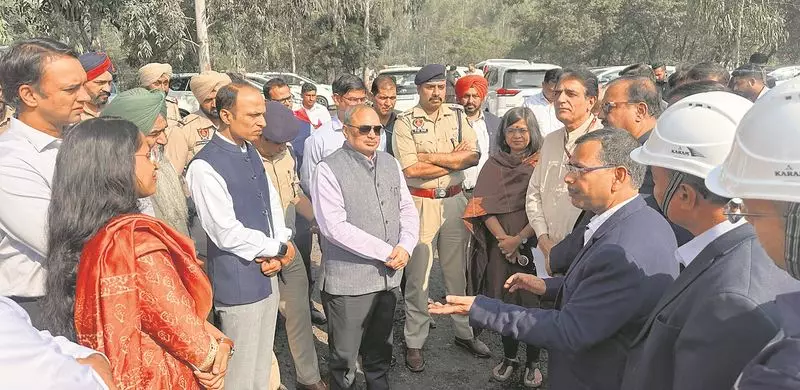
In a landmark development that could transform North India's environmental landscape, Punjab stands at the threshold of a revolutionary solution to its perennial stubble burning crisis. The Chief of the Commission for Air Quality Management (CAQM) has announced groundbreaking initiatives that promise to eliminate crop residue burning while creating economic opportunities for farmers.
The Turning Point in Agricultural Practices
After years of battling toxic smog and environmental degradation, Punjab is witnessing an unprecedented shift in agricultural management. The CAQM leadership reveals that the state is "on the cusp of a stubble revolution" that could serve as a model for agricultural regions worldwide.
Multi-Pronged Strategy Unveiled
The comprehensive approach includes:
- Advanced machinery deployment for in-situ management
- Establishment of industrial units utilizing paddy straw
- Innovative economic models making stubble management profitable
- Robust monitoring systems ensuring compliance
From Environmental Hazard to Economic Asset
The most significant breakthrough lies in transforming agricultural waste into valuable resources. Industries are now recognizing paddy straw as raw material for various applications, creating a sustainable circular economy that benefits both farmers and manufacturers.
"We're moving from enforcement to empowerment," emphasized the CAQM chief, highlighting how farmers are becoming active participants in this environmental transformation rather than reluctant compliance.
Technology Meets Tradition
Modern agricultural technology is being seamlessly integrated with traditional farming practices. The initiative combines sophisticated monitoring systems with grassroots awareness campaigns, ensuring that the revolution reaches every farming community across Punjab.
The Road Ahead
While challenges remain, the progress signals a new era for Punjab's agriculture. The successful implementation of these measures could not only solve the air quality crisis affecting northern India but also position Punjab as a global leader in sustainable agricultural practices.
The coming harvesting season is expected to demonstrate tangible results of these initiatives, potentially marking the beginning of the end for stubble burning in the region.





